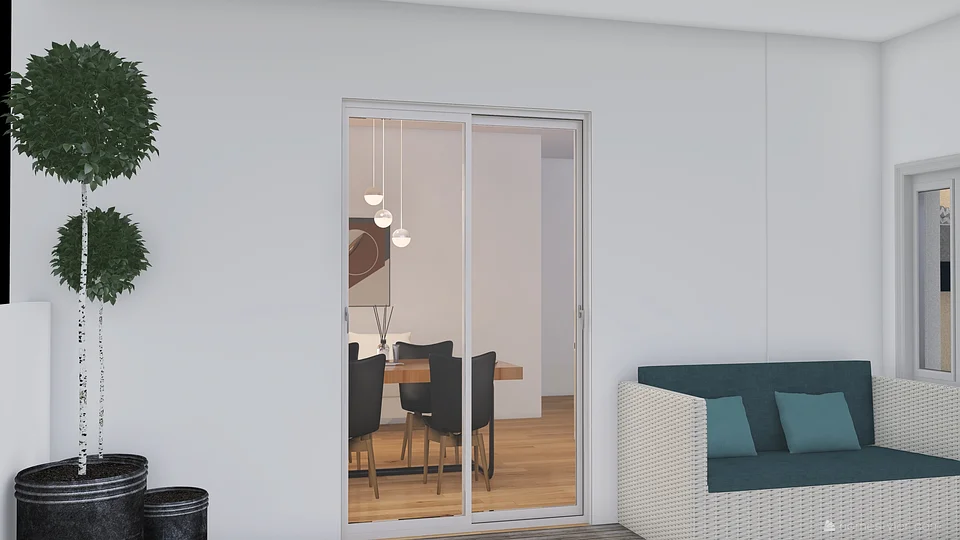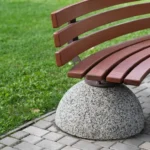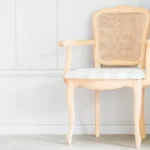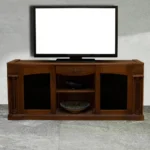Using a sliding glass door as a room divider can add style, function, and flexibility to your space. This architectural choice is trending as homeowners seek modern ways to redefine their interiors. But is it right for you? This post delves into the advantages and disadvantages of sliding glass doors as room dividers, helping you decide if they’re a match for your design needs.
What Are Sliding Glass Doors as Room Dividers?
Sliding glass doors are doors that glide along a track and can open or close a space seamlessly. Traditionally used for patios or backyard access, these doors have found a new role indoors, dividing spaces without sacrificing openness or light. Popular in open-concept layouts, these doors can create multipurpose areas within homes, providing a balance of connectivity and separation.
Key Benefits of Sliding Glass Doors as Room Dividers
Enhances Natural Light
One of the most appreciated features of sliding glass doors is how they allow natural light to flow through a space. Instead of blocking light as solid walls do, glass dividers provide boundaries without sacrificing brightness. This feature can improve mood, reduce energy bills, and make rooms feel more spacious.
Maximizes Space Efficiency
Sliding glass doors require minimal floor space to operate since they glide rather than swing open. This is particularly beneficial for smaller homes or rooms where every inch counts. By using sliding glass doors, you can create an illusion of larger, interconnected areas that feel open yet organized.
Offers Flexibility and Functionality
Sliding glass doors allow for easy modifications to your layout. Open the doors for an expansive feel or close them to create a cozy, private area. This adaptability is ideal for multipurpose rooms, allowing you to transform spaces as your needs change throughout the day.
Modern Aesthetic Appeal
Sliding glass doors bring a sleek, contemporary look to interiors, matching well with various decor styles. They work beautifully in minimalist spaces, modern homes, or even industrial settings, adding elegance and simplicity. For homeowners wanting to elevate their design, these doors are a stylish option.
Improved Indoor-Outdoor Connection
In homes with indoor-outdoor living setups, sliding glass doors help create a seamless flow between spaces. This is a fantastic option for connecting the living room with a patio or deck, creating a unified environment for socializing and entertaining.
Drawbacks of Sliding Glass Doors as Room Dividers
Limited Sound Insulation
Glass doors are not as effective as solid walls in soundproofing. If you need absolute quiet between rooms, sliding glass may not be the best choice, as sound can easily pass through glass panels.
Privacy Concerns
While sliding glass doors provide a visual boundary, they may lack full privacy. Depending on the glass type, people can still see through them, which might be an issue for rooms where confidentiality is needed, such as home offices or bedrooms.
Higher Maintenance Needs
Keeping sliding glass doors looking clean requires regular maintenance. Glass shows smudges, fingerprints, and dust easily, especially in high-traffic areas. Be prepared for frequent cleaning to maintain their transparency and appeal.
Heat and Cold Transfer
Glass is a poor insulator compared to walls, meaning temperature changes may impact the room. Rooms divided by glass doors may experience uneven heating or cooling, especially in extreme climates.
Higher Initial Costs
Installing sliding glass doors can be more expensive than regular doors or temporary room dividers. Although they add value, they often require professional installation and quality materials, increasing initial expenses.

Types of Glass for Sliding Room Dividers
Choosing the right type of glass can balance privacy, energy efficiency, and aesthetics. Here are a few popular options:
- Frosted Glass: Offers better privacy while still allowing light to pass through.
- Tempered Glass: Stronger and safer; it’s designed to shatter into small, less dangerous pieces.
- Tinted Glass: Reduces glare and can help with temperature control.
- Textured Glass: Adds a unique design element and slightly enhances privacy.
Sliding Glass Door vs. Traditional Wall Room Dividers
If you’re torn between a sliding glass door and a traditional wall, here’s a breakdown:
- Aesthetics: Glass doors add modern style, while walls provide a classic, closed-off look.
- Space: Sliding doors save space and can make areas feel larger.
- Cost: Glass doors are often more expensive upfront but can add home value.
- Light: Traditional walls block light, while glass keeps spaces illuminated.
Each option has its strengths, so consider your room function, design preference, and budget when deciding.
Installation Tips for Sliding Glass Doors
Professional Installation Is Recommended
To ensure proper fit and function, hiring a professional installer is advisable. They’ll secure the doors, making them safe and effective for long-term use.
Choosing High-Quality Tracks and Hardware
Invest in durable hardware to avoid problems down the line. Quality tracks ensure smooth sliding and prevent door misalignment.
Safety Considerations
If you have young children or pets, consider safety locks and shatter-resistant glass to reduce accident risks.
Consider Privacy Solutions
Privacy film, curtains, or blinds can be added to glass doors if you want more seclusion.
Sliding Glass Doors in Different Rooms: How to Make It Work
Living Rooms
In the living room, a sliding glass divider can create zones, such as separating a lounge area from a home office without creating an isolated feel.
Kitchens and Dining Areas
Between kitchens and dining spaces, sliding glass doors offer flexibility. You can close them to contain cooking smells or open them for an open-plan experience when entertaining.
Bedrooms
For studio apartments, a sliding glass door provides a sense of privacy while keeping the space open. Frosted or tinted glass works well here for added privacy.
Maintenance Tips for Sliding Glass Doors
Regular Cleaning
Keep glass clean with a mild cleaner or a mix of vinegar and water to avoid streaks.
Lubricating Tracks
Tracks need occasional lubrication to maintain smooth sliding and avoid squeaks. Apply a silicone-based lubricant for optimal results.
Checking for Damage
Inspect the glass for cracks or chips regularly to ensure safety. Small damage can often be repaired without needing a full replacement.
Conclusion: Are Sliding Glass Doors Right for You?
Sliding glass doors as room dividers offer a balance of openness and separation, making them ideal for those who want to blend functionality and modern design. With their ability to allow light, save space, and add aesthetic appeal, they can be a valuable addition to any home. However, issues with sound insulation, privacy, and maintenance mean they aren’t ideal for every situation. Assess your specific needs and lifestyle to determine if this innovative solution aligns with your vision for your home’s layout and function.









